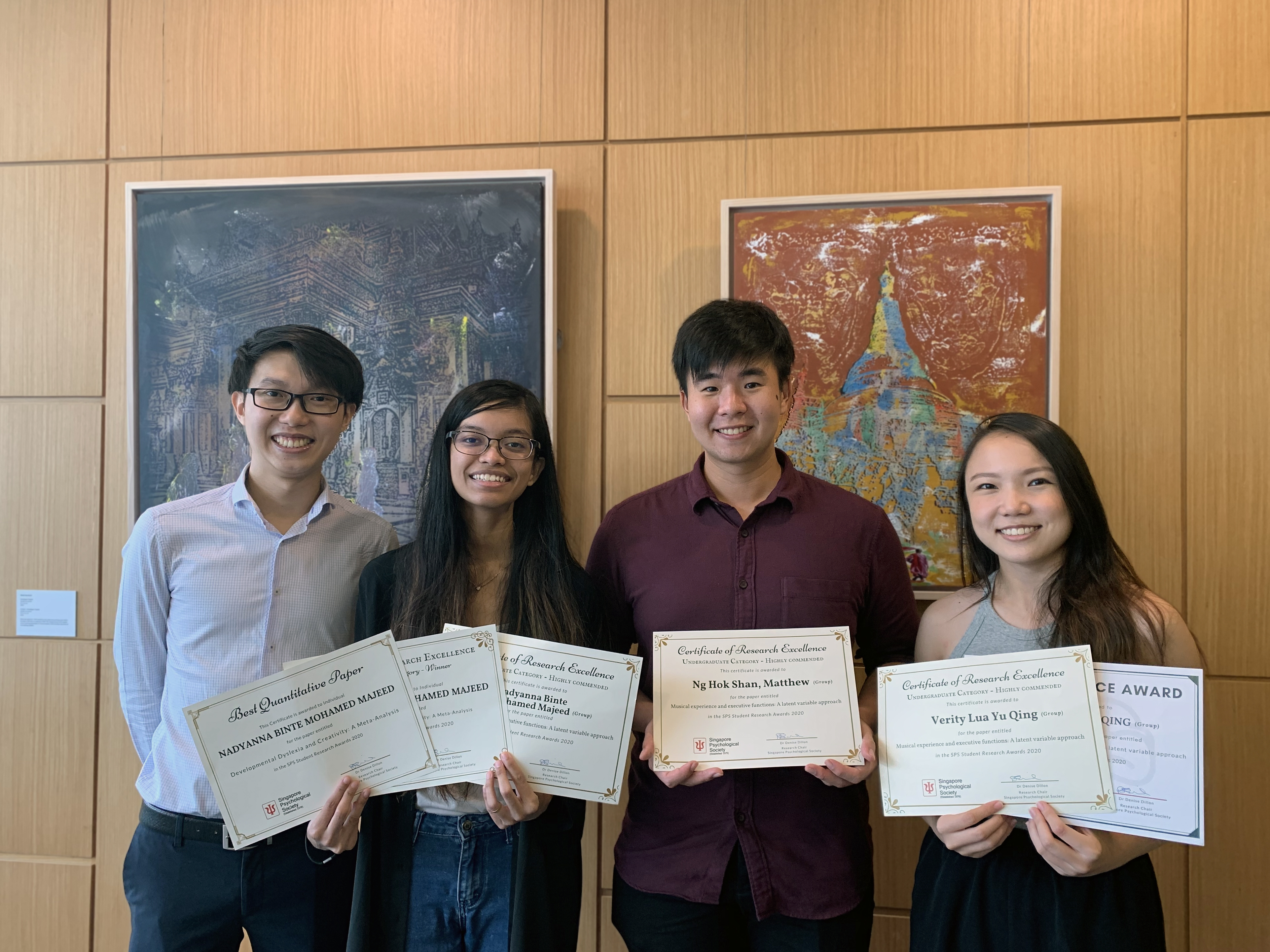
(From left to right): Assistant Professor Andree Hartanto, Nadyanna Majeed, Matthew Ng, Verity Lua
3 SMU Social Science undergraduates, Nadyanna Majeed, Verity Lua, and Matthew Ng, have won 5 Singapore Psychological Society’s Student Research Awards namely:
| Award | Winner(s) | Project |
|---|---|---|
| Winner of Best Undergraduates Research | Nadyanna Majeed | Dyslexia and creativity: A meta-analysis |
| 1st Runner-up of Best Undergraduates Research | Verity Lua, Nadyanna Majeed, and Matthew Ng | Musical experience and executive functions: A latent variable approach |
| Winner of Best Quantitative Research Papers | Nadyanna Majeed | Dyslexia and creativity: A meta-analysis |
| Runner-up of Best Quantitative Research Papers |
Verity Lua, Nadyanna Majeed, and Matthew Ng | Musical experience and executive functions: A latent variable approach |
| Winner of Audience Choice Award | Verity Lua, Nadyanna Majeed, and Matthew Ng | Musical experience and executive functions: A latent variable approach |
Singapore Psychological Society, which was founded in 1979 and has its aims the advancement of psychology as a science and a profession in Singapore. Every year, the society hosted The Students Research Awards for psychology students from Diploma level to Undergraduates and Graduates level to recognize research excellence among psychology student researchers in Singapore. The submission is open to all academic institutions in Singapore across all domains of psychology.
Abstract:
Dyslexia and creativity: A meta-analysis
Musical experience and executive functions: A latent variable approach
While an expanding body of studies examining the relationship between musical experience and executive functions has emerged, the evidence for such a relationship has been mixed, possibly due to methodological issues, such as low sample size and task impurity problems. Hence, the current study investigated this relationship while addressing the aforementioned methodological limitations in the existing literature. We conducted a multi-session study with a battery of nine executive functioning tasks in a sample of 175 young adults, and estimated the latent variables of inhibitory control, task-switching, and working memory capacity. We found no evidence of any relationship between musical experience and latent factors of executive functions in both frequentist and Bayesian structural equation models. The current study provides important practical and pedagogical implications in questioning the use of music lessons as an effective way to improve cognitive abilities.